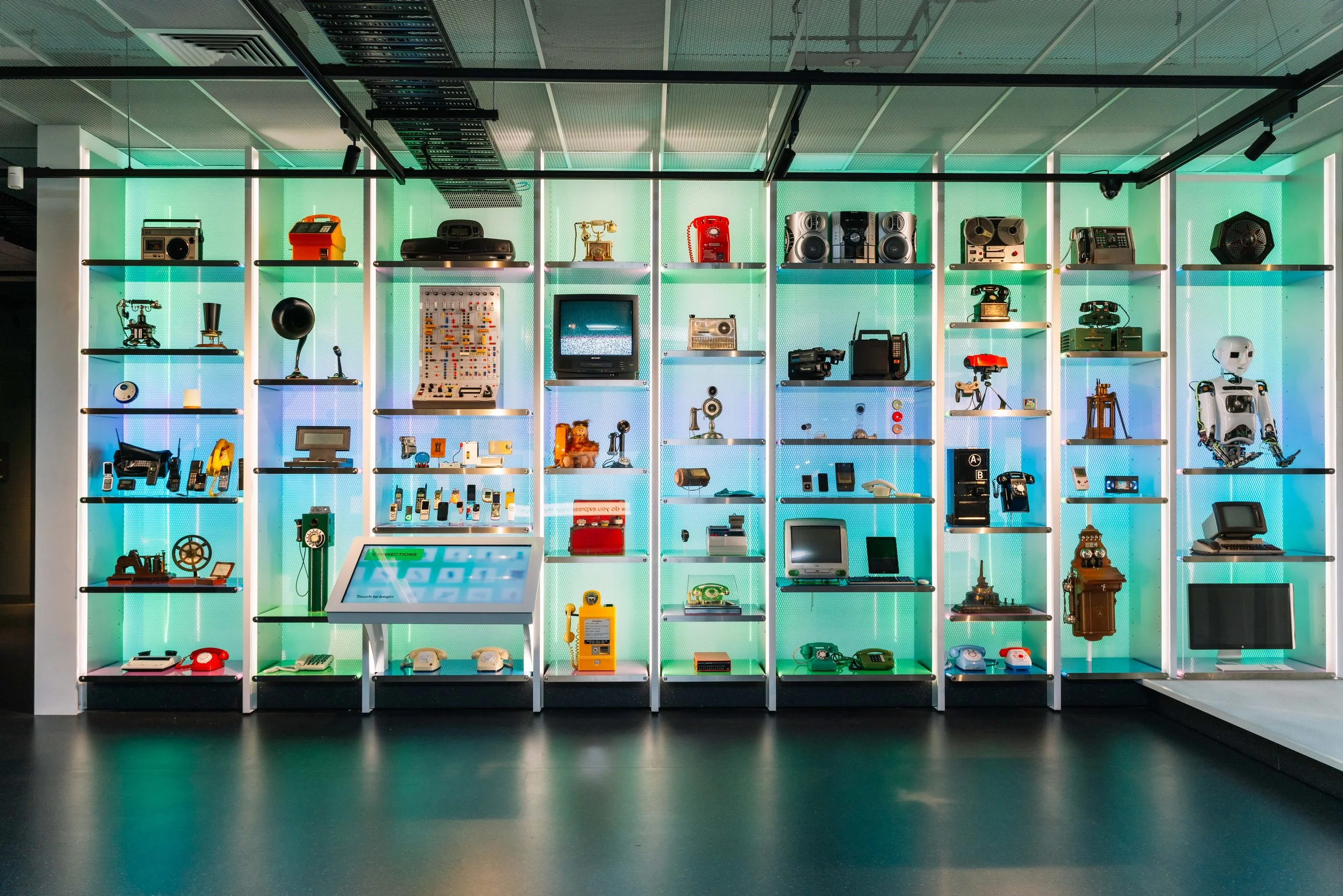14th Australian Media Traditions Conference
RMIT University
4–5 September 2025
(Pre-conference social eventS, 3 September)
‘Archives and Archetypes: Recovery and Renewal’
Conference Program
Key dates
CFP Open - 3 February 2025
CFP Close - 31 March 2025
Extended CFP Close - 14 April 2025
Abstract decisions - 13 May 2025
Early-bird registrations open - 2 June 2025
Early-bird registrations close - 1 August 2025
Deadline to confirm participation - 8 August 2025
Program release - 22 August 2025
Deadline to register and pay for the conference dinner - 25 August (check your email for details)
Pre-conference visit to the National Communication Museum in Hawthorn - (afternoon) 3 September 2025)
Conference social event at the Capitol Theatre - (evening) 3 September 2025
14th Australian Media Traditions Conference - 4–5 September 2025
Conference dinner - 4 September 2025.
Pre-conference social eventS
Group tour of the National Communication Museum in Hawthorn, at 2pm on 3 September 2025.
Book tickets for this AMT2025 group tour at a discount of $25, book on the NCM event page.
Limited to 20 spots, so get in quick!
Book tickets for the screening of Balibo along with an expert discussion at The Capitol on 3 September 2025.
The pre-conference social mixer begins at 5.30pm ahead of the screening at 6.30pm.
Conference delegates can use the code AMT2025 at checkout to get $5 tickets and a free drink on arrival.
Conference Dinner
The conference dinner is taking place on the evening of Thursday, 4 September 2025 at The Lincoln Hotel (91 Cardigan Street, Carlton). The Lincoln is a Melbourne icon, celebrated for its historic charm, seasonal menu, and a focus on Australian produce. We’re excited to share the charm and quality of one of our favourite locals - just a 10-minute walk from RMIT.
Conference delegates can check their email for registration details for the conference dinner.
Conference location
RMIT City Campus, 124 La Trobe Street, Melbourne VIC 3000
Stream 1: Room: 08.04.11 (Building 8, Level 4, Rooms 11–13)
Stream 2: Room: 80.02.007 (Building 80, Level 2, Room 7)
Keynote and K.S. Inglis Address in Stream 2.
Enter both locations off Swanston Street
Recommended Restaurants, Cafes and Bars
Check out our interactive Google Map of recommended restaurants, cafes and bars in Melbourne.
Keynote Address
Archives In OUR Vulnerable Hands
Olympia Barron, Australian Screen Research Collection
Olympia Barron serves as the Collection Coordinator for RMIT University's Australian Screen Research Collection. With a commitment to preserving and promoting Australian film and television cultural heritage, Olympia plays a role in managing and enhancing one of the university’s diverse collections. She is passionate about engaging students and researchers through initiatives that highlight the significance of archival materials. As an advocate for accessibility and education, Olympia believes that collections serve as valuable resources for research, learning, and inspiration across media disciplines.
The RMIT Australian Screen Research Collection (RMIT ASRC) is a specialist film and television industry resource open to the public. Since 2003, RMIT has been the proud custodian of the AFI Research Collection, alongside which it has built its own significant archive of screen culture resources. The collection includes materials encompassing cinema and television from the world over, with particular strengths in screen theory and history and in Australian cinema. The collection features diverse materials, from newspaper clippings files, books and journals, to film and television scripts, directories, reports, film promotional material, and film festival catalogues.
With a commitment to both preserving the past and inspiring future scholarship, the RMIT ASRC aims to support a new generation of research and storytelling. The collection will continue to serve as a vital resource for exploring the evolving narratives captured through film and television, ensuring they remain accessible, studied and celebrated for years to come.
K.S. Inglis Address
Machine for Conversation? Cracking Open the National Communication Museum
The National Communication Museum (NCM) is not your usual “look but don’t touch” museum. In fact, they’re actively dismantling that model in radical and imaginative ways. Join Senior Curator Jemimah Widdicombe and Conservator Ellie Thomas for a candid conversation about how NCM, Melbourne’s newest museum, is reimagining what archives can be. From activating collections through collaboration with artists and technologists to tackling the challenges of digital preservation, the looming ‘digital dark age,’ and curating decay, this talk will unpack how NCM is flipping traditional archival practice on its head. Expect bold ideas, practical insights, and a fresh take on the future of museums, technological innovation and cultural memory.
Jemimah Widdicombe, National Communication Museum
Jemimah Widdicombe (she/her) is the Senior Curator at the National Communication Museum (NCM). She leads the development of temporary exhibitions, oversees future collection acquisitions, and as co-curator of the semi-permanent galleries, was part of the core team that built the museum from the ground up. Her work focuses on the intersection of culture and technology, underpinned by foundations in human interaction research & design and cultural production. Jemimah's curatorial career spans over a decade of interdisciplinary projects, including strategic exhibitions, collections and content roles at Museums Victoria and University of Melbourne, coupled with extensive experience in digital research, education, and cultural program coordination in Kanaky New Caledonia and France.
Ellie Thomas, National Communication Museum
Ellie Thomas is the Conservator at the National Communication Museum (NCM) in Melbourne and holds a BA in Psychology and Art History and a Master of Cultural Materials Conservation. Her research applies interdisciplinary and intersectional theories to conservation frameworks to consider intentional modification or destruction of cultural materials as a mode of preservation. Ellie is on the editorial committee of the AICCM Bulletin and served as Secretary of the Women’s Art Register from 2024-2025.
Conference Convenors
-

Dr Josie Vine
Josie is a senior lecturer and Program Manager in the RMIT Journalism program. Her research interests are in the area of journalism history and culture, as well as the growing democratic function of hyperlocal news. Her recent publications include 'Larrikins, Rebels and Journalistic Freedom in Australia' (2021, Palgrave Macmillan) and 'Newspaper Building Design and Journalism Cultures in Australia and the UK' (co-authored with Salford University's Dr Carole O'Reilly) (2022, Routledge). She is currently working members of the US-based Association for the Education of Journalism and Mass Communication on a project looking into the impact of American journalism through the history of Australian journalism. Josie is also working with the Local and Independent News Association and the Journalism Education and Research Association of Australia on research into the democratic role and future of hyperlocal news.
-

Dr Alexa Scarlata
Alexa is a Lecturer in Digital Communication in the School of Media and Communication and co-leads the Streaming Industries and Genres Network (SIGN). She is a scholar of media and cultural industries, with a special interest in internet distributed television, content production and national screen policy. Her book, Pivoting and Producing for Online TV: Australia’s Transition was published with Routledge in May this year.
-

Associate Professor John Tebbutt
John is Adjunct Associate Professor in the School of Media and Communication. His research interests include immigration, cultural diversity, population studies and public policy.
-

Dr Damien O'Meara
Damien is a Lecturer in Public Relations in the School of Media and Communication. His research examines socio-industrial influences on behind the scenes negotiations for onscreen diversity and communication practices in cultural industries. Damien is a Board Member for the Melbourne Queer Film Festival, and has published work in Media International Australia, Continuum, Senses of Cinema and The Conversation. His book Queer stories in Australian TV drama (Routledge) will be published in 2026.
Call for Papers - CLOSED
RMIT School of Media and Communication is proud to announce it is hosting the 14th Australian Media Traditions biennial conference on Thursday 4th and Friday 5th of September 2025. The conference will be held in-person at RMIT University’s City Campus, 123 Swanston Street, Melbourne. There will also be a social event at the Capitol Theatre on the afternoon of Wednesday 3rd of September.
We are calling for paper and panel proposals that speak to the theme ‘Archives and Archetypes: Recovery and Renewal’.
Archives and archetypes are each about conservation. Archives are materially conservative. By maintaining records in a specific location under certain conditions they secure historical records. Archetypes is a dynamic framework within which endures universal identities complete with their own weaknesses and strengths. Yet this is only so within a tradition of western cultural thought.
We invite you to join us in challenging what media traditions may be. AMT2025 aims to recover an understanding of key ideas and approaches to media as we work to reveal past histories of resisting the status quo and renew relationships to audiences and the public.
Conference submissions from academics, students, media practitioners, representatives of cultural institutions, and other scholars are warmly welcomed. Proposals can cover diverse areas including media institutions, advertising, audiences, book publishing, digital gaming, journalism, libraries, media preservation, policy and regulation, publishers and printers, convergence and technological developments.
Submissions could consider:
New practices and methods shaping the future of archival collection and preservation
New technologies enabling the creation of an archive
The role of archives in documenting marginalized voices and underrepresented histories
Challenges and gaps in preservation and accessibility
Although submissions connected to the theme are encouraged, all proposals for papers and panels connected to media history will be considered.
A special journal issue is in planning. More details to come closer to the conference.
Please send paper abstracts and panel proposals to ausmediatraditions2025@gmail.com by Monday 31 March. EXTENDED to Monday, 14 April.
Paper abstracts should be no more than 200 words, and be accompanied by a title, author biographical note (up to 50 words), and up to 5 keywords.
Pre-constituted panel proposals (for up to 5 people) should include a title, up to 5 keywords, and a 200-word overview, plus 200 words from each participant on their contribution, as well as a biographical note of up to 50 words for each speaker.







